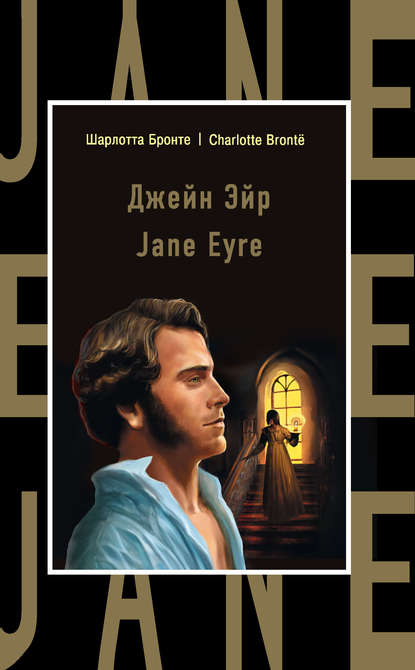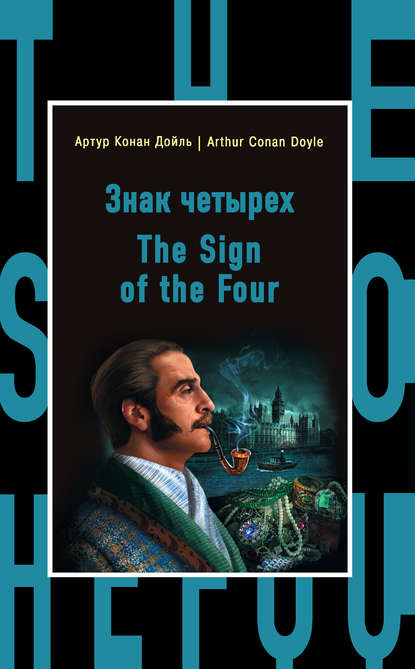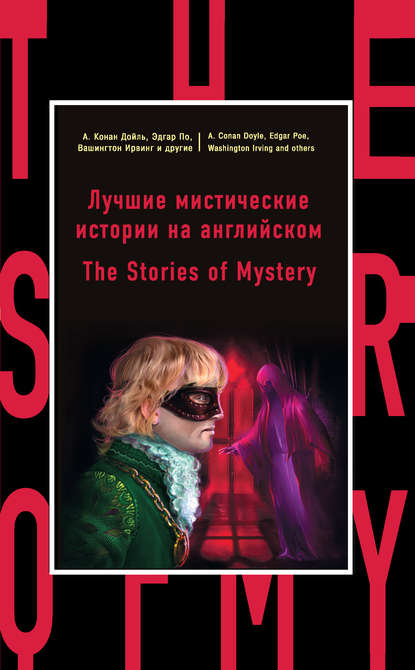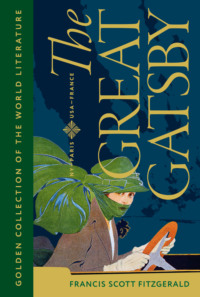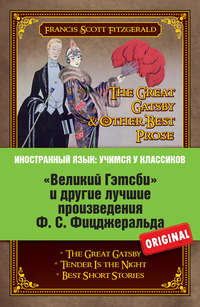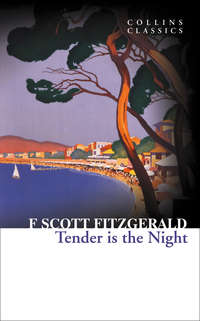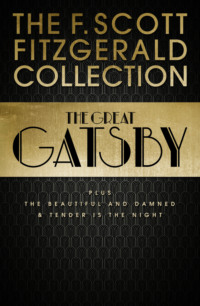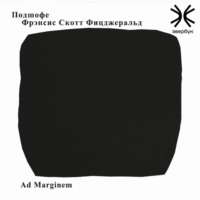
Полная версия
Любимые повести на английском / Best Short Novels
‘No, thanks,’ answered John, politely but firmly. He was enjoying his bath too much to desire any distraction. But distraction came. In a moment he was listening intently to the sound of flutes from just outside, flutes ripping a melody that was like a waterfall, cool and green as the room itself, accompanying a frothy piccolo,[21] in play more fragile than the lace of suds that covered and charmed him.
After a cold salt-water bracer and a cold fresh finish, he stepped out and into a fleecy robe, and upon a couch covered with the same material he was rubbed with oil, alcohol, and spice. Later he sat in a voluptuous chair while he was shaved and his hair was trimmed.
‘Mr. Percy is waiting in your sitting-room,’ said the negro, when these operations were finished. ‘My name is Gygsum, Mr. Unger, sir. I am to see to Mr. Unger every morning.’
John walked out into the brisk sunshine of his living-room, where he found breakfast waiting for him and Percy, gorgeous in white kid knickerbockers, smoking in an easy chair.
IV
This is a story of the Washington family as Percy sketched it for John during breakfast.
The father of the present Mr. Washington had been a Virginian,[22] a direct descendant of George Washington,[23] and Lord Baltimore.[24] At the close of the Civil War[25] he was a twenty-five-year-old Colonel with a played-out plantation and about a thousand dollars in gold.
Fitz-Norman Culpepper Washington, for that was the young Colonel’s name, decided to present the Virginia estate to his younger brother and go West. He selected two dozen of the most faithful blacks, who, of course, worshipped him, and bought twenty-five tickets to the West, where he intended to take out land in their names and start a sheep and cattle ranch.
When he had been in Montana for less than a month and things were going very poorly indeed, he stumbled on his great discovery. He had lost his way when riding in the hills, and after a day without food he began to grow hungry. As he was without his rifle, he was forced to pursue a squirrel, and in the course of the pursuit he noticed that it was carrying something shiny in its mouth. Just before it vanished into its hole – for Providence did not intend that this squirrel should alleviate his hunger – it dropped its burden. Sitting down to consider the situation Fitz-Norman’s eye was caught by a gleam in the grass beside him. In ten seconds he had completely lost his appetite and gained one hundred thousand dollars. The squirrel, which had refused with annoying persistence to become food, had made him a present of a large and perfect diamond.
Late that night he found his way to camp and twelve hours later all the males among his darkies were back by the squirrel hole digging furiously at the side of the mountain. He told them he had discovered a rhinestone mine, and, as only one or two of them had ever seen even a small diamond before, they believed him, without question. When the magnitude of his discovery became apparent to him, he found himself in a quandary. The mountain wasadiamond – it was literally nothing else but solid diamond. He filled four saddle bags full of glittering samples and started on horseback for St. Paul.[26] There he managed to dispose of half a dozen small stones – when he tried a larger one a storekeeper fainted and Fitz-Norman was arrested as a public disturber. He escaped from jail and caught the train for New York, where he sold a few medium-sized diamonds and received in exchange about two hundred thousand dollars in gold. But he did not dare to produce any exceptional gems – in fact, he left New York just in time. Tremendous excitement had been created in jewelry circles, not so much by the size of his diamonds as by their appearance in the city from mysterious sources. Wild rumors became current that a diamond mine had been discovered in the Catskills,[27] on the Jersey[28] coast, on Long Island,[29] beneath Washington Square. Excursion trains, packed with men carrying picks and shovels, began to leave New York hourly, bound for various neighboring El Dorados. But by that time young Fitz-Norman was on his way back to Montana.
By the end of a fortnight he had estimated that the diamond in the mountain was approximately equal in quantity to all the rest of the diamonds known to exist in the world. There was no valuing it by any regular computation, however, for it wasone solid diamond– and if it were offered for sale not only would the bottom fall out of the market, but also, if the value should vary with its size in the usual arithmetical progression, there would not be enough gold in the world to buy a tenth part of it. And what could any one do with a diamond that size?
It was an amazing predicament. He was, in one sense, the richest man that ever lived – and yet was he worth anything at all? If his secret should transpire there was no telling to what measures the Government might resort in order to prevent a panic, in gold as well as in jewels. They might take over the claim immediately and institute a monopoly.
There was no alternative – he must market his mountain in secret. He sent South for his younger brother and put him in charge of his colored following – darkies who had never realized that slavery was abolished. To make sure of this, he read them a proclamation[30] that he had composed, which announced that General Forrest had reorganized the shattered Southern armies and defeated the North in one pitched battle. The negroes believed him implicitly. They passed a vote declaring it a good thing and held revival services immediately.
Fitz-Norman himself set out for foreign parts with one hundred thousand dollars and two trunks filled with rough diamonds of all sizes. He sailed for Russia in a Chinese junk and six months after his departure from Montana he was in St. Petersburg. He took obscure lodgings and called immediately upon the court jeweller, announcing that he had a diamond for the Czar. He remained in St. Petersburg for two weeks, in constant danger of being murdered, living from lodging to lodging, and afraid to visit his trunks more than three or four times during the whole fortnight.
On his promise to return in a year with larger and finer stones, he was allowed to leave for India. Before he left, however, the Court Treasurers had deposited to his credit, in American banks, the sum of fifteen million dollars – under four different aliases.[31]
He returned to America in 1868, having been gone a little over two years. He had visited the capitals of twenty-two countries and talked with five emperors, eleven kings, three princes, a shah, a khan, and a sultan. At that time Fitz-Norman estimated his own wealth at one billion dollars. One fact worked consistently against the disclosure of his secret. No one of his larger diamonds remained in the public eye for a week before being invested with a history of enough fatalities, amours, revolutions, and wars to have occupied it from the days of the first Babylonian Empire.[32]
From 1870 until his death in 1900, the history of Fitz-Norman Washington was a long epic in gold. There were side issues, of course – he evaded the surveys, he married a Virginia lady, by whom he had a single son, and he was compelled, due to a series of unfortunate complications, to murder his brother, whose unfortunate habit of drinking himself into an indiscreet stupor had several times endangered their safety. But very few other murders stained these happy years of progress and expansion.
Just before he died he changed his policy, and with all but a few million dollars of his outside wealth bought up rare minerals in bulk, which he deposited in the safety vaults of banks all over the world, marked as bric-à-brac.[33] His son, Braddock Tarleton Washington, followed this policy on an even more tensive scale. The minerals were converted into the rarest of all elements – radium – so that the equivalent of a billion dollars in gold could be placed in a receptacle no bigger than a cigar box.
When Fitz-Norman had been dead three years his son, Braddock, decided that the business had gone far enough. The amount of wealth that he and his father had taken out of the mountain was beyond all exact computation. He kept a note-book in cipher in which he set down the approximate quantity of radium in each of the thousand banks he patronized, and recorded the alias under which it was held. Then he did a very simple thing – he sealed up the mine.
He sealed up the mine. What had been taken out of it would support all the Washingtons yet to be born in unparalleled luxury for generations. His one care must be the protection of his secret, lest in the possible panic attendant on its discovery he should be reduced with all the property-holders in the world to utter poverty.
This was the family among whom John T. Unger was staying. This was the story he heard in his silver-walled living-room the morning after his arrival.
V
After breakfast, John found his way out the great marble entrance and looked curiously at the scene before him. The whole valley, from the diamond mountain to the steep granite cliff five miles away, still gave off a breath of golden haze which hovered idly above the fine sweep of lawns and lakes and gardens. Here and there clusters of elms made delicate groves of shade, contrasting strangely with the tough masses of pine forest that held the hills in a grip of dark-blue green. Even as John looked he saw three fawns in single file patter out from one clump about a half mile away and disappear with awkward gayety into the black-ribbed half-light of another. John would not have been surprised to see a goat-foot piping his way among the trees or to catch a glimpse of pink nymph[34] -skin and flying yellow hair between the greenest of the green leaves.
In some such cool hope he descended the marble steps, disturbing faintly the sleep of two silky Russian wolfhounds at the bottom, and set off along a walk of white and blue brick that seemed to lead in no particular direction.
He was enjoying himself as much as he was able. It is youth’s felicity as well as its insufficiency that it can never live in the present, but must always be measuring up the day against its own radiantly imagined future – flowers and gold, girls and stars, they are only prefigurations and prophecies of that incomparable, unattainable young dream.
Конец ознакомительного фрагмента.
Текст предоставлен ООО «Литрес».
Прочитайте эту книгу целиком, купив полную легальную версию на Литрес.
Безопасно оплатить книгу можно банковской картой Visa, MasterCard, Maestro, со счета мобильного телефона, с платежного терминала, в салоне МТС или Связной, через PayPal, WebMoney, Яндекс.Деньги, QIWI Кошелек, бонусными картами или другим удобным Вам способом.
Примечания
1
Hades – Аид, в древнегреческой мифологии – подземное царство мертвых.
2
The Mississippi River – крупнейшая река в Северной Америке; Миссисипи вместе с притоком Миссури является самой длинной рекой в мире.
3
New England – Новая Англия, регион на северо-востоке США, включающий в себя шесть штатов; назван так капитаном Смитом в 1614 г.
4
Midas – Мидас, в греко-римской мифологии – царь Фригии, известный своей глупостью и жадностью.
5
Boston – Бостон, город в США на северо-восточном побережье Атлантики в заливе Массачусетс.
6
Chicago – Чикаго, крупный город на северо-западе штата Иллинойс.
7
Victorian – викторианский, относящийся к стилю в искусстве, архитектуре, литературе времен королевы Виктории (1837–1901).
8
Preparatory school – в США – частная школа, в которой учеников готовят к поступлению в колледж.
9
The Ritz Carlton Hotel – роскошный отель «Ритц-Карлтон». Сезар Ритц (1850–1918) создал сеть отелей, включая отель «Ритц» в Париже (1898) и «Ритц-Карлтон» в Лондоне (1906).
10
Montana – штат в США на границе с Канадой.
11
Brakeman – в США – тормозной кондуктор на железной дороге.
12
Protagonist – главное действующее лицо в пьесе, литературном произведении или реальном жизненном событии.
13
The Montana Rockies – Скалистые горы на западе штата Монтана, район высоких горных вершин и глубоких ущелий.
14
Croesus – Крез (VI век до н. э.), последний царь Лидии, древнего государства в Малой Азии; Крез славился своим несметным богатством, и позднее его имя стало символом богатства.
15
Château – дворец или замок, расположенный в сельской местности.
16
Acciaccare – музыкальный термин, обозначающий короткий, сжатый, форсированный звук.
17
Rococo – изысканный стиль в искусстве и архитектуре XVIII в.
18
Titania – Титания, персонаж комедии У. Шекспира «Сон в летнюю ночь»; напоминает Геру, верховную богиню в греческой мифологии.
19
Platonic – имеющий отношение к Платону (428 до н. э.–348 до н. э.), одному из величайших древнегреческих философов, или к его учению.
20
The Adriatic Sea – Адриатическое море, часть Средиземного моря между Италией и Балканским полуостровом.
21
Piccolo – маленькая флейта, издающая нежный звук.
22
Virginian – имеющий отношение к Вирджинии, штату на Атлантическом побережье США, к югу от Вашингтона; штат назван в честь Елизаветы I Английской, королевы-девы (1533–1603).
23
George Washington – Джордж Вашингтон (1732–1799), главнокомандующий Американской революционной армией во время Гражданской войны в США в 1775–1783 гг. и первый президент Соединенных Штатов (1789–1797).
24
Lord Baltimore – Джордж Калверт, основатель первой Британской колонии в Мэриленде, к северу от Вирджинии; его сын Леонард Калверт (1606–1647) был первым губернатором колонии Мэриленд.
25
The Civil War – четырехлетняя Гражданская война (1861–1865) между федеральным правительством и штатами Юга, которые хотели выйти из Союза.
26
St. Paul – Сент-Пол, город на реке Миссисипи в штате Миннесота.
27
the Catskills – Катскилл, горы в США, часть горного массива Аппалачи к северо-западу от Нью-Йорка, штат Нью-Йорк.
28
Jersey – Нью-Джерси, один из тринадцати первых штатов на Атлантическом побережье США.
29
Long Island – Лонг-Айленд, остров в Атлантическом океане вблизи устья реки Гудзон на юге штата Нью-Йорк.
30
Proclamation – декларация, воззвание, официальное или публичное заявление.
31
Alias – вымышленное имя, которое человек использует в определенных случаях или для каких-либо целей.
32
The Babylonian Empire – Вавилон, древняя империя и очаг культуры в Месопотамии, территории между реками Тигр и Евфрат.
33
Bric-à-brac – безделушки, не имеющие особой ценности.
34
Nymph – нимфа, в греко-римской мифологии – божество, живущее в реках, лесах и т. д.; красивая молодая женщина (перен.).


